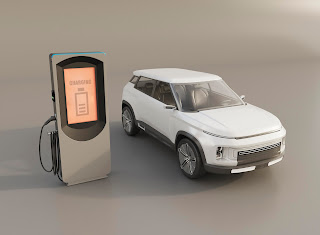"Electric Vehicles in India: Driving Sustainable Mobility in a Growing Market"
Introduction:
Electric vehicles (EVs) have gained significant traction worldwide as a key solution to mitigate climate change and reduce reliance on fossil fuels. In recent years, India has emerged as a frontrunner in embracing electric mobility, driven by ambitious government policies, technological advancements, and a growing awareness of environmental concerns. This article explores the current state of EVs in India, key challenges, and the opportunities they present for a sustainable future.
Government Initiatives and Policy Support:
The Indian government has introduced several initiatives to promote the adoption of electric vehicles. The National Electric Mobility Mission Plan (NEMMP) and the Faster Adoption and Manufacturing of Electric Vehicles (FAME) scheme provide incentives and subsidies for EV buyers, support research and development, and establish charging infrastructure across the country. These measures have played a pivotal role in creating an enabling environment for EV manufacturers and consumers alike.
Market Dynamics and Industry Players:
India's EV market has witnessed exponential growth in recent years. Major automakers, both domestic and international, have made substantial investments in manufacturing EVs in India. Companies like Tata Motors, Mahindra & Mahindra, and MG Motor India have introduced a range of electric cars catering to various price segments and driving requirements. Furthermore, the availability of government incentives and favorable policies has encouraged startups to enter the market, contributing to increased competition and innovation.Infrastructure Development:
The development of a robust charging infrastructure network is crucial for the widespread adoption of electric vehicles. Recognizing this, the Indian government has initiated various measures to establish public and private charging stations across the country. Additionally, innovative solutions such as battery swapping stations and mobile charging units have been introduced to address charging concerns. While challenges remain, including limited accessibility in rural areas, the progress made in charging infrastructure development is commendable.Environmental Impact and Benefits:
The transition to electric vehicles holds significant environmental benefits for India. With its high population density and urban pollution concerns, EVs offer a cleaner alternative to traditional combustion engine vehicles. The reduction in greenhouse gas emissions, air pollution, and noise pollution can contribute to improved public health and the overall quality of life. Additionally, electric vehicles can play a vital role in integrating renewable energy sources into the grid through vehicle-to-grid (V2G) technology.Technological Advancements and Cost Efficiency:
Advancements in battery technology, coupled with increasing economies of scale, have led to a decline in the cost of electric vehicles. As battery prices continue to decrease, the upfront cost of EVs is becoming more competitive with internal combustion engine vehicles. Additionally, ongoing research and development efforts are focused on enhancing battery efficiency, charging speed, and range, which will further enhance the appeal of EVs to consumers.Key Challenges and the Way Forward:
While the growth of EVs in India is promising, challenges remain. Limited charging infrastructure, concerns about range anxiety, and the high initial cost of EVs are barriers to widespread adoption. To overcome these challenges, a collaborative approach involving the government, private sector, and consumers is essential. Continued investment in charging infrastructure, financial incentives, and public awareness campaigns are crucial for the mass adoption of electric vehicles.
Conclusion:
India's journey towards electric mobility represents a paradigm shift in the automotive industry. The government's steadfast commitment to promoting EVs, combined with technological advancements and the growing environmental consciousness of consumers, has paved the way for a sustainable transportation future. As the ecosystem evolves, addressing challenges related to infrastructure and affordability will be instrumental in ensuring a smooth transition to electric vehicles. With concerted efforts, India has the potential to emerge as a global leader in the EV revolution, benefiting both the economy and the environment.





Post a Comment